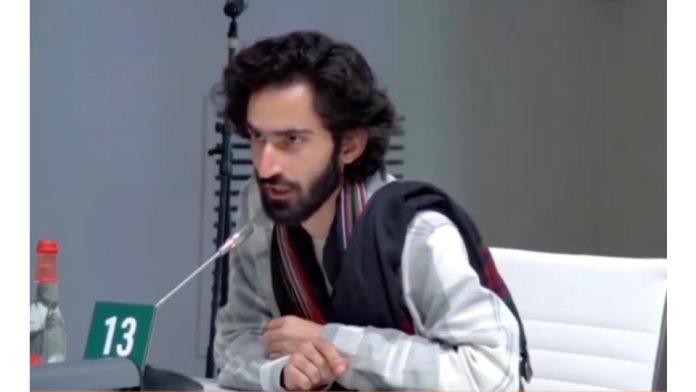The COP28 climate summit in Dubai has concluded. Some describe it more or less as a failure, but that part is up for another debate. In the midst of all the chaos—counting achievements and failures of the organization—an important voice was missed: Jamal Baloch, the representative of Balochistan. Jamal Baloch voiced his concerns and raised the issue of Pak-occupied Balochistan at the global platform.
Pak-occupied Balochistan is on the frontline of climate disaster. When given the stage, Jamal said a paradoxical proverb of Pak-occupied-Balochistan—rain. He said, “In Balochistan, we have a saying: Rain is what we strive for, and rain is what we are afraid of.” This duality reflects the stark reality. Balochistan desperately needs rain to break the cycle of drought, but heavy rainfall brings devastating floods.
Emergency-like situation
To give you a little context, Muhammad Tahir Khan, a climate change expert, said, “It is an emergency-like situation, worse than any other province due to Balochistan’s geographical situation and huge landmass.” He further added, “Balochistan has been witnessing the effects of climate change since the late 1990s. Now the threat has metastasized, and people are on the receiving end.”
Khan also noted that the threat of climate change in Balochistan has diversified from 2015 to 2018. Pak-occupied-Balochistan is almost half of Pakistan; therefore, it is hugely diversified. The northern part receives heavy snow and torrential rains, whereas the central and eastern regions face flooding over and over again. The remaining Makran and Rakhshan divisions face drought.
As climate change worsens, innocent Baloch residents are migrating. From drought-hit parts, they are compelled to leave for a better place with their livestock. Those who stay behind face a different struggle. They employ other means, such as extracting water from the tube wells using solar power. However, they are unaware of the alarming reality that the water table is depleting due to this extraction.
Role of international community
As if this emergency-like situation was not dire enough, the Pak Army has even failed to employ a proper mechanism. The Army didn’t care in the past, nor does it care now.
When the establishment in power fails to help its people, then comes the role of another stakeholder, the international community. At COP28, Jamal expressed his gratitude to the international community for their support and relief. However, he highlighted the pressing issue of monitoring the funds that are being provided for relief. The Pak “establishment” is not only monitoring the relief aids but also exploiting them.
The dire circumstances and lack of support have left the Baloch people dependent on support of funds. However, this glimmer of hope is also lost when it is being exploited and diverted by the Pak Army for its own vested interest.
Pak Army’s brutal grip
Since March 1948, the Pak Army has not only forcefully occupied Balochistan but also ruled it with an iron fist. It has inflicted inhumane conditions and torture on Baloch lives. The Army employs its brutal kill-and-dump policy, daily home raids, enforced disappearances, staged encounters, target killings, torture, humiliation at checkpoints, kidnappings for ransom, and uses the CTD & police as tools of oppression.
Even though it feels unreal, the reality of Pak-occupied-Balochistan in 21st century is both shocking and heartbreaking. We need voices like Jamal to speak up against the atrocities of the Pak Army and highlight the concerning issue of human rights violations in Pak-occupied-Balochistan. Jamal Baloch’s voice at COP28 shone a light on the climate crisis’s disproportionate impact on Pak-occupied-Balochistan and the urgent need for international attention to both the environmental and human rights challenges faced by the region.

